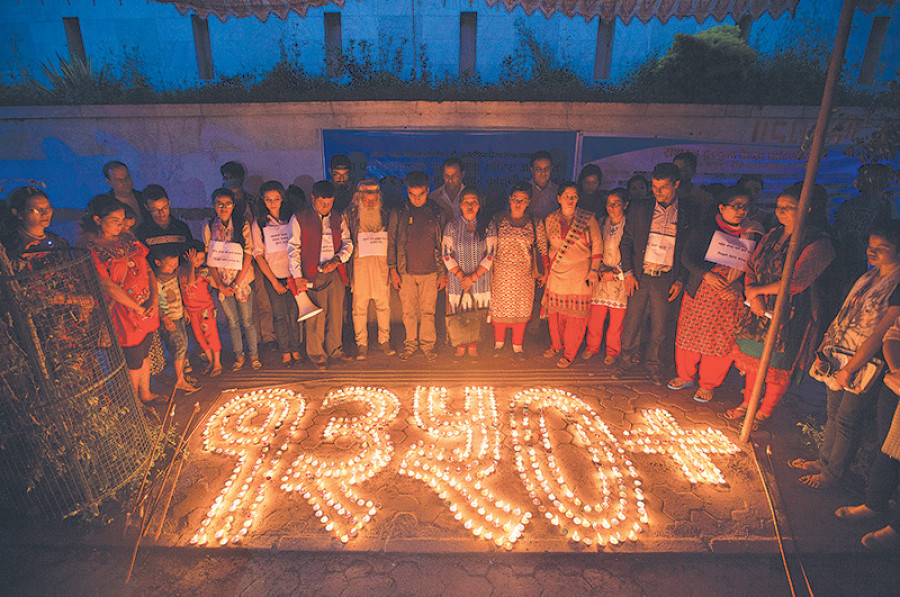National
Hope fades for families of disappeared
When Phadindra Simkhada was arrested by police from his hometown in Chitwan on February 15, 1998, the Maoist insurgency had just marked its two years anniversary.
Post District Bureau
When Phadindra Simkhada was arrested by police from his hometown in Chitwan on February 15, 1998, the Maoist insurgency had just marked its two years anniversary. The armed rebellion, which had started from the hill district of Rukum in the midwest, was just starting to fan out across the country. And the state security forces were ferreting out suspected rebels everywhere.
Getting arrested as a rebel suspect at that time meant indefinite detention at an undisclosed location, high likelihood of torture and interrogation, and worse yet, death.
Phadindra might have suffered a similar fate as one of the estimated 1,400 victims of enforced disappearance. He is one of the unaccounted for souls of the decade-long war.
Phadindra’s wife, Radhika, launched a frantic search for her husband for years. Today, more than a decade after the war ended in a political truce in November, 2006, she is as clueless about her husband’s whereabouts as she was nearly 20 years ago.
The cruelty dealt by war did not end for Radhika after Phadindra’s disappearance. Her son, Hemmani, who, spurred by his father’s disappearance at the hands of state police had joined the Maoist party, was killed in Lamjung on September 2, 2003.
Radhika has moved to Pokhara since. She lives in a squatter settlement and earns her living selling vegetables.
For once, when the Maoists joined the government and become the largest political party, she had hoped to learn the truth about her husband.
“I was wrong. I no longer have the disillusion that the Maoists or any party or the government will help me,” she says. “It’s been nearly 20 years and yet there is no news about my husband.”
Radhika’s sentiment reverberates throughout the families of persons who were victims of enforced disappearance, be it from the state side or the Maoist rebels.
Dulu Kumari Karki, of Rainadevi Chhahara in Palpa, says she has little hope of knowing what happened to her husband, Min Bahadur, who disappeared on April 7, 2004.
“Even if he was killed, we have the right to know where his remains are located. We don’t know if we will ever learn the truth,” she says.
Aananath Baral, who represents the family of disappeared Maoist fighters, says even the Commission of Investigation on Enforced Disappeared Persons, which was formed nine years after the peace deal, has failed to work effectively to address their concerns.
Some families, according to him, have spent all their properties searching for their missing loved ones. “They did so out of desperation and now they are broke,” Baral says. “The state will not compensate for their loss, but it can at least offer them justice.”
But justice is still a far cry from where they stand right now, more than a decade after the end of the war, with no knowledge of their loved ones who were snatched and disappeared.
Sumitra GC, the wife of disappeared police personnel Karnadhoj of Rambha Rural Municipality in Palpa, says she has not even received the state-announced relief.
“Like many other families we also registered our complaint with the commission through Local Peace Committee, but only a handful of the families got the relief,” says Sumitra.
In Dhading, the families of disappeared are angry at the government for not trying hard enough to provide them justice.
According to the record of the International Committee of the Red Cross, there are 25 victims of enforced disappearance in the district. At an event held to mark the International Day of the Victims of Enforced Disappearances at Ghatbesi on Wednesday, the families of disappeared persons vented ire on the government and parties for prolonging the transitional justice process.




 14.24°C Kathmandu
14.24°C Kathmandu














